News & Awards

Ask the Expert: How daylight saving time can affect your dreams
Americans set their clocks back one hour in November as daylight saving time ends. While the shift may seem minor, disruptions to our sleep schedule can affect how long we spend in rapid eye movement, or REM sleep, the stage most closely tied to dreaming. But how does it all work exactly?
Here, Dr. Kimberly Fenn answers all your dream questions and more.
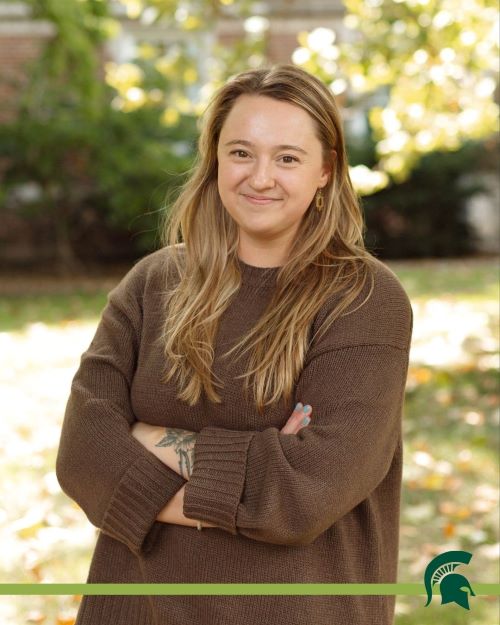
Grad student Bailey Rann receives a Psychonomic Society Travel Award
Congratulations to graduate student Bailey Rann on being awarded a 2025 J. Frank Yates Student Travel Award.

How can we make fewer mistakes? US Navy funds new study to find out.
A team of MSU cognitive psychologists have received a $860,000 grant from the Office of Naval Research to develop assessments for identifying people who are good at performing complex procedural tasks, even under challenging conditions like sleep deprivation and frequent interruptions.
Read more about what this study will entail here.

CCN graduate student named Educator of the Month from The Graduate School
The Graduate School at MSU named Bobicheng (Beau) Zhang, a doctoral student in Cognition and Cognitive Neuroscience as the March 2025 Educator of the Month.
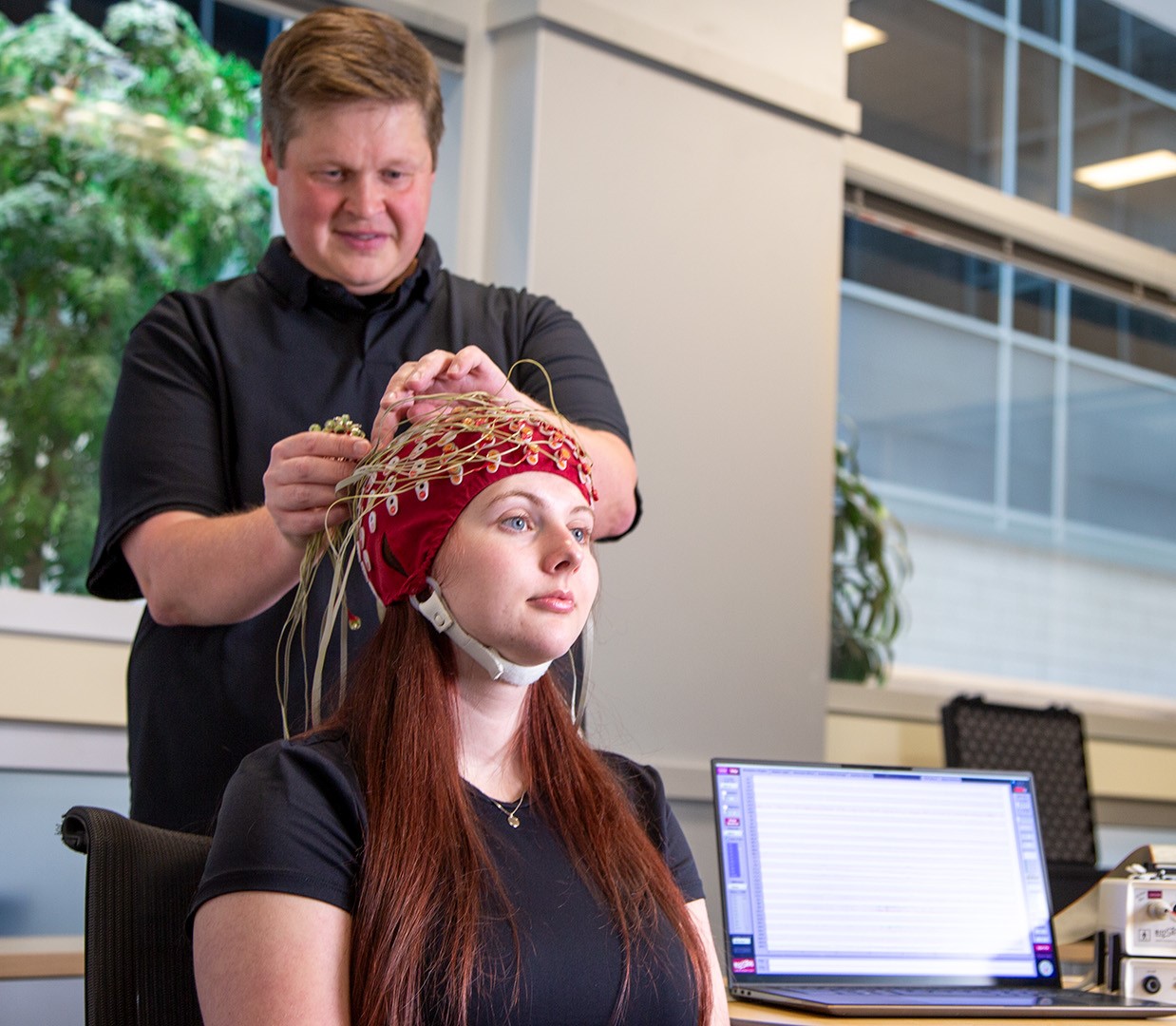
Computational models of human memory show significance of mental timeline
How do people form a mental timeline of what happened in their lives? To help answer that question, Dr. Karl Healey uses Michigan State's supercomputer to do computational models of memory and recall.
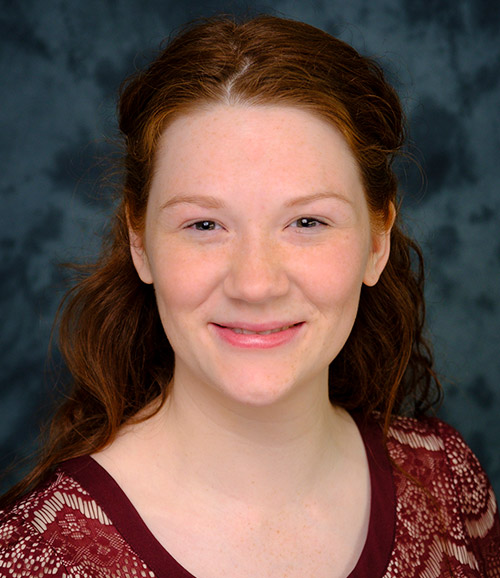
CCN graduate student receives a CSS Research Scholars Award
The College of Social Science established a research scholars award in 2015 to promote graduate student research initiatives through small grants. Mundorf received funding to pay participants for two experiments related to her dissertation topic and assistance covering travel to a conference.
Abigail's dissertation uses computational modeling to examine the automatic and controlled mechanisms that determine how we navigate through our memories. For example, events are often recalled in the same order they were experienced, but it is unclear if this organization occurs automatically or if it is a result of internal strategies. Across four experiments, Mundorf found evidence that order information is both learned and retrieved automatically, but intentional strategies also play an important role in guiding memory search.
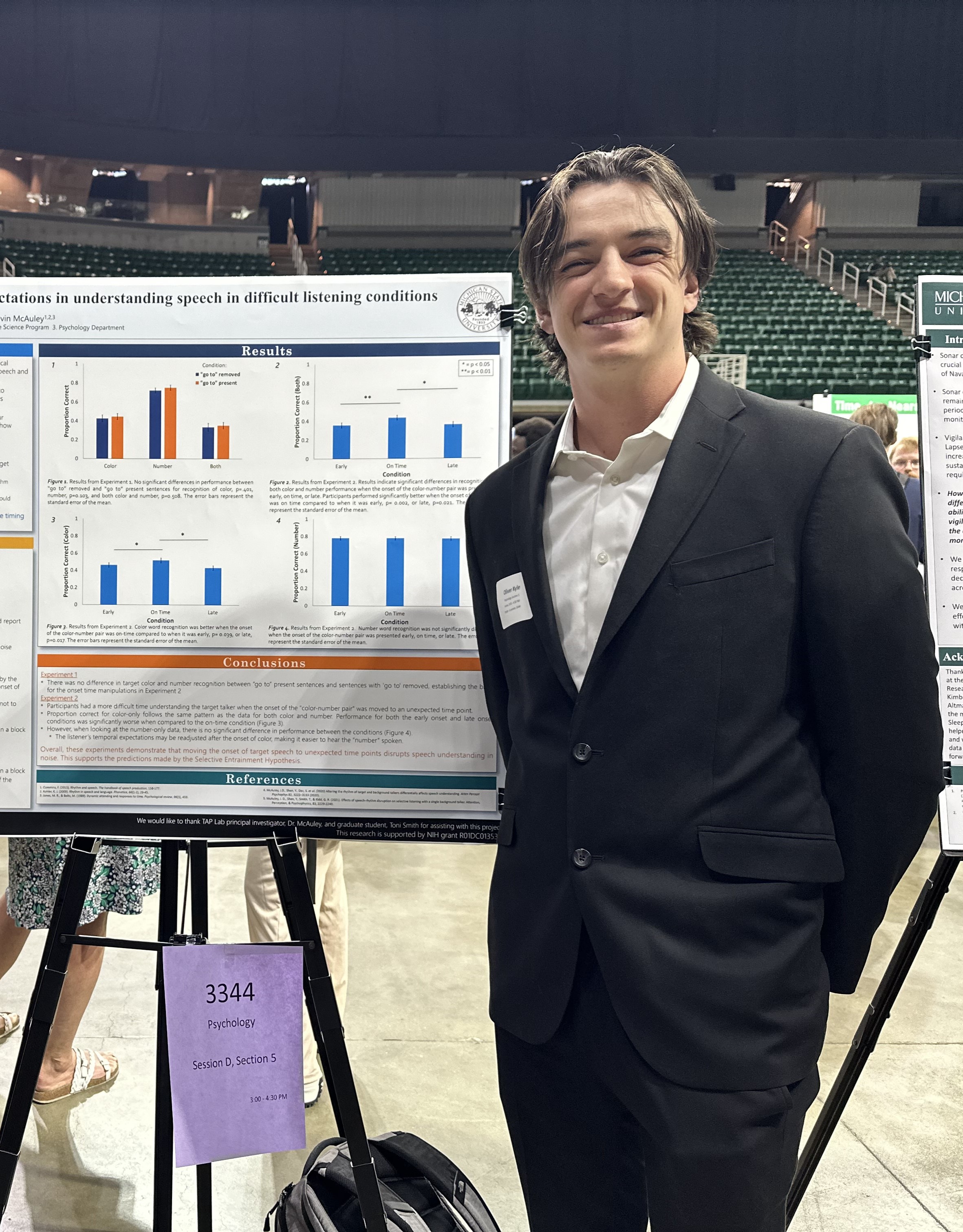
PSY Student Research Spotlight: Kyle Oliver
Kyle Oliver, a senior psychology and neuroscience double major, has been working in the Timing, Attention, and Perception Lab since his first year at MSU. This year, he received a Dean's Assistantship Award from the College of Social Science to help fund his own research experiment with his mentor Dr. Devin McAuley.
Learn more about his research experience in the TAP Lab here.
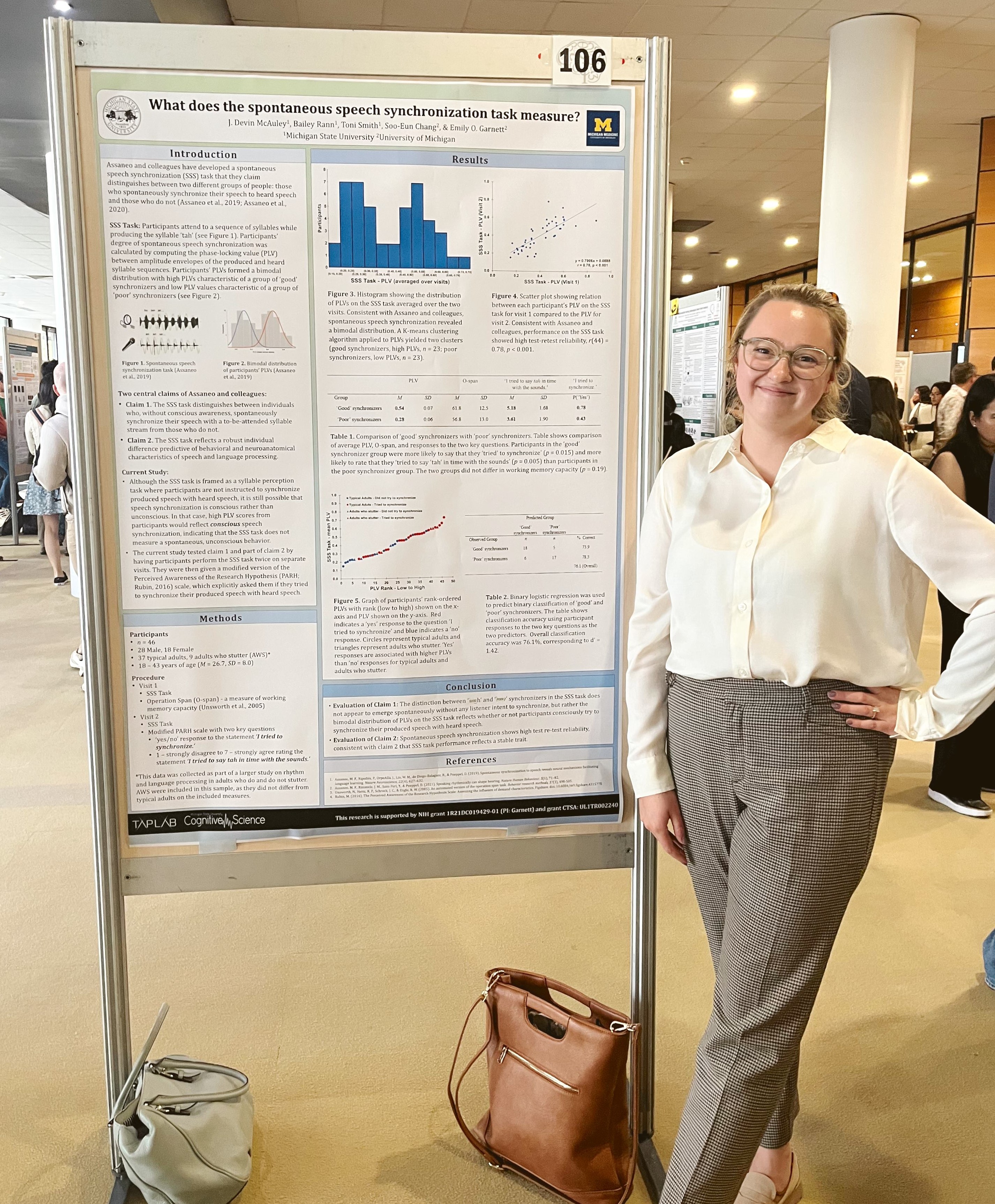
TAP Lab's Bailey Rann presents at the Society for the Neurobiology of Language conference
Bailey Rann, a recent MSU psychology grad and current lab manager of the Timing, Attention, and Perception lab recently attended the 2023 conference for the Society for the Neurobiology of Language in Marseille, France. Bailey has been involved with the lab's collaboration with the University of Michigan's Speech Neurophysiology lab studying speech processing in adults who stutter. She presented their poster on the study during the conference.
Learn more about the Timing, Attention, and Perception lab here.
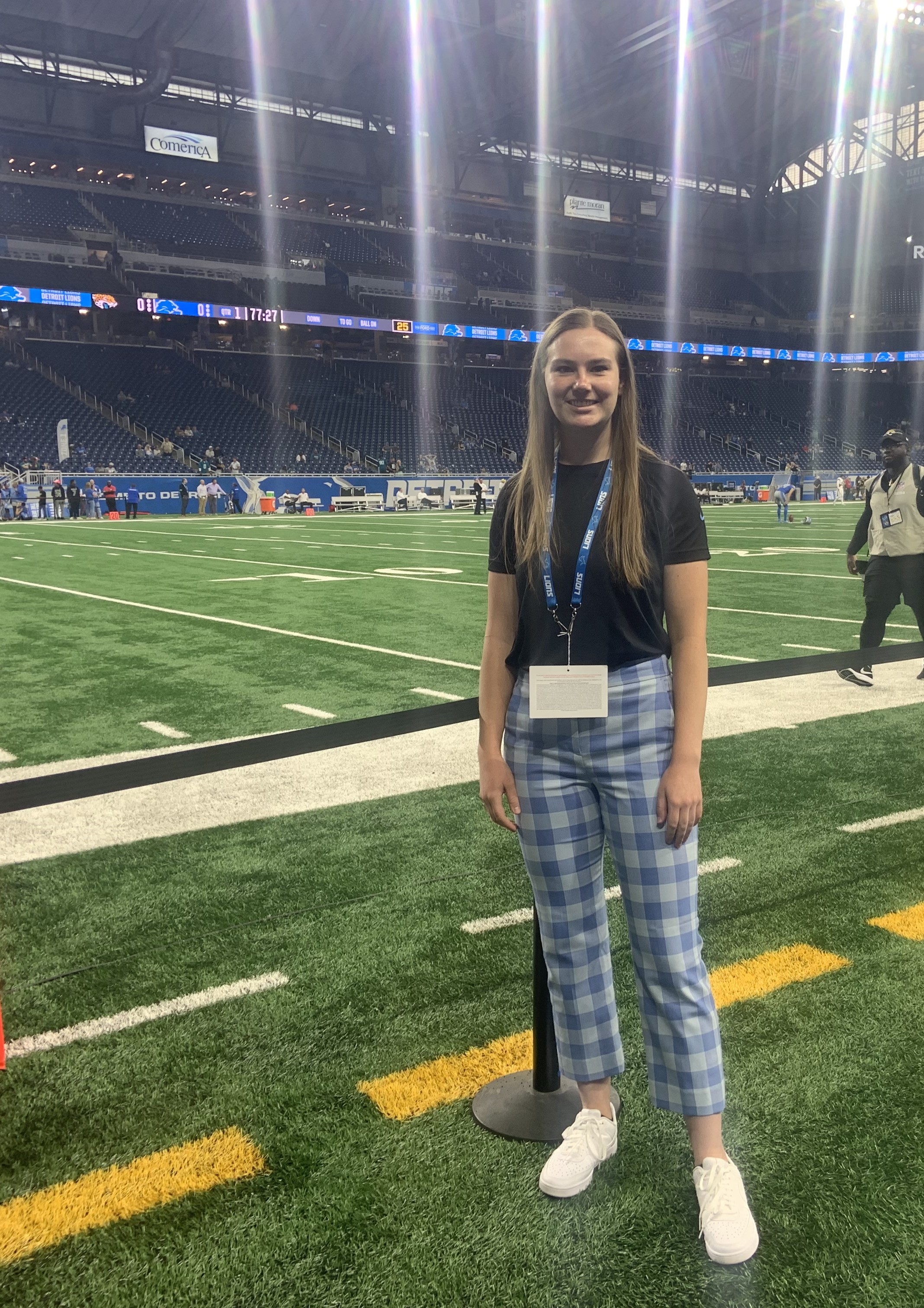
Internship spotlight: Grad student Erin Neaton with the Detroit Lions
Erin Neaton, a fourth-year psychology graduate student specializing in Cognition and Cognitive Neuroscience, interned with the Detroit Lions as an analyst in their information department this summer.
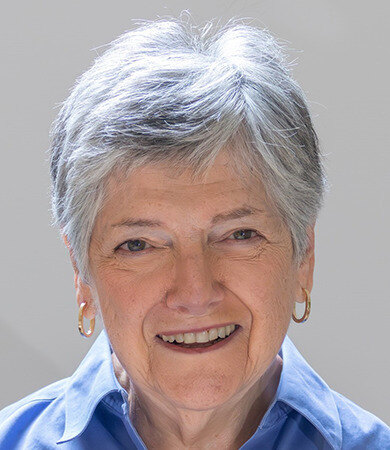
CCN Emerita Rose Zacks receives APS 2024 William James Fellow Award
Congratulations to Dr. Rose Zacks, professor emerita of cognition and cognitive neuroscience in the Department of Psychology at Michigan State University, for receiving the 2024 William James Fellow Award from the Association for Psychological Science (APS).
This award is among the highest honors conferred by APS and it recognizes distinguished members for a lifetime of significant intellectual contributions to the field of psychology.

Can coffee or a nap make up for sleep deprivation? A psychologist explains why there's no substitute for shut-eye
How can we get less sleep and still perform at our peak? Dr. Kimberly Fenn shares about her research with the MSU Sleep and Learning Lab with this question in mind.
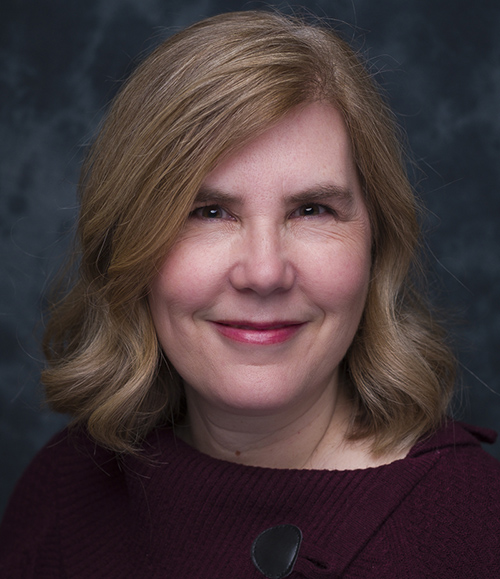
Attention and Memory: Insights from Dr. Ravizza's Research
Delve into the world of cognitive neuroscientist, Professor Susan Ravizza, who has devoted her career to exploring working memory, attention, and cognitive control. Her research sheds light on the impact of digital distractions on learning, the relationship between personality differences and online learning, and the importance of attention and memory in adapting to changing environments.
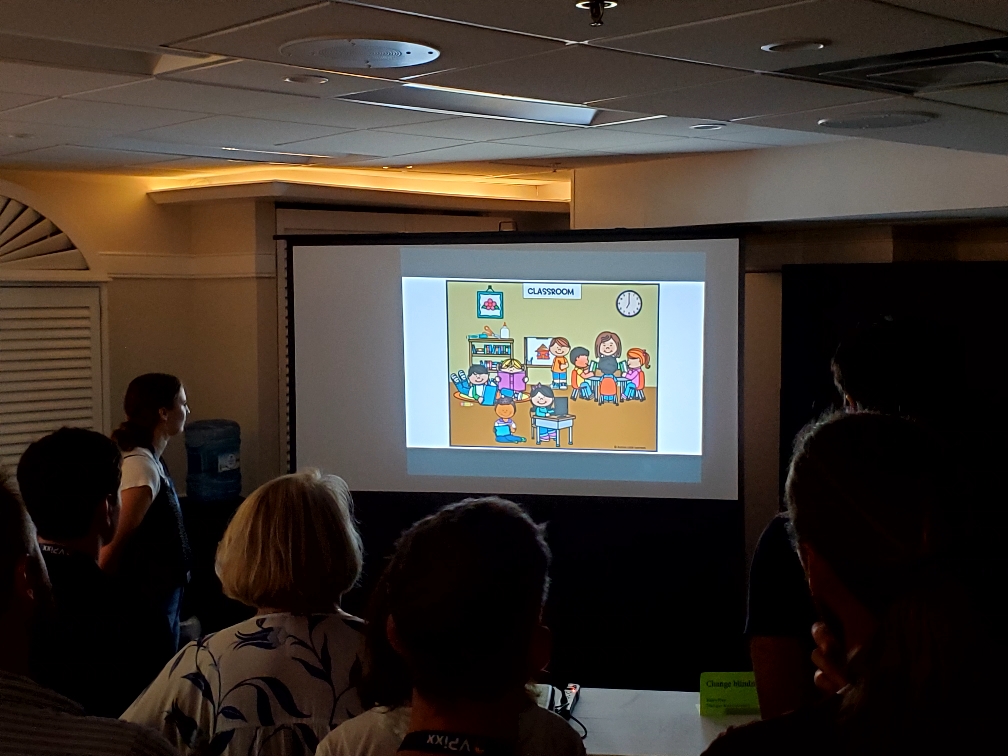
Brascamp Lab's Haley Frey Showcases Change Blindness
Brascamp lab manager Haley Frey showcased the change blindness stimuli she created at the Demo Night of the 19th annual Vision Sciences Society 2023 meeting. Change blindness is the phenomenon that occurs when people fail to notice obvious changes in a scene they are looking at, even when they are paying attention.
The Brascamp Lab created a new demo set using cartoon images where a handful of small changes occur, but a large color change happens over the span of many sections. The large majority of people who see these demos do not notice the color change even though they are looking right at it. This is a striking demonstration of how we don't end up seeing all of the visual information we take in with our eyes.
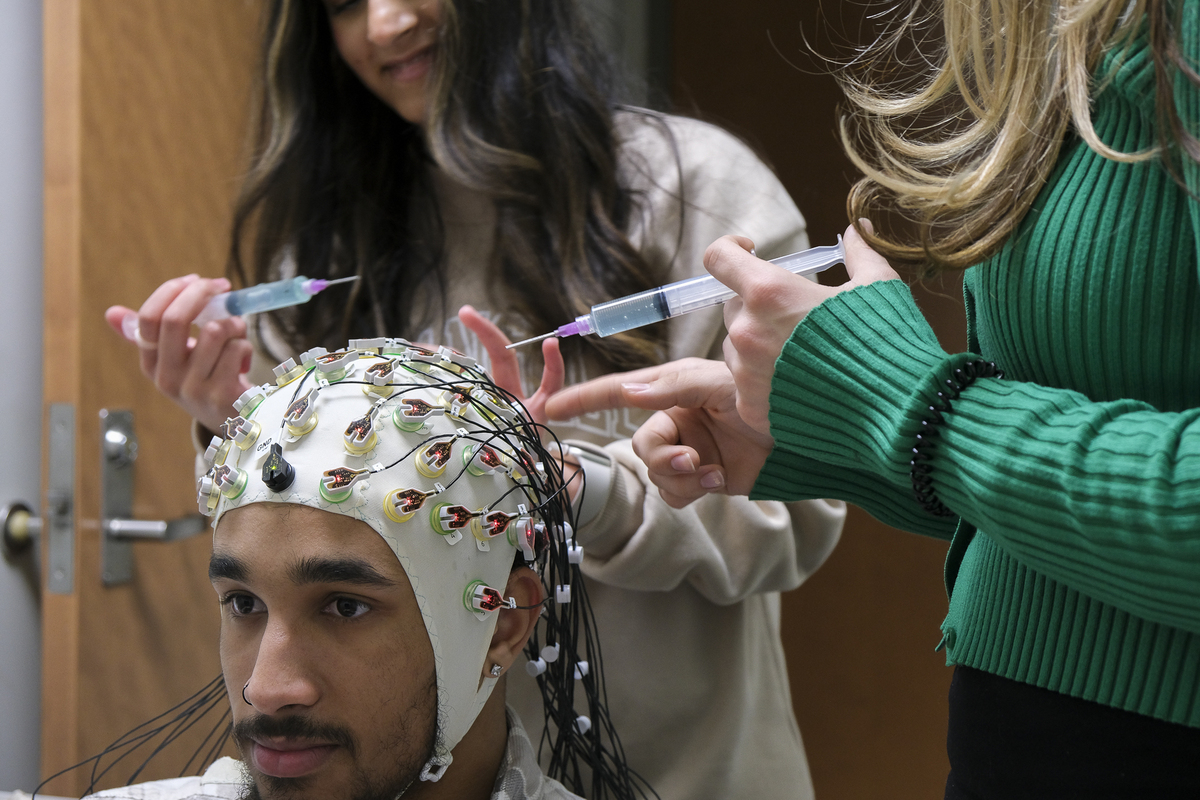
New photos from the Cognitive Control Neurolab
Student researchers, Srishti, Julia, and Brayden, are seen plugging electrodes into the cap to prepare for running an EEG experiment. Once the cap is ready, it is placed on an individual's head properly on the scalp before then inserting gel into the electrodes. This increases the conductivity of electrical activity recorded from the brain. Participants in the study will then perform a memory task while the lab records the electrical brain activity.

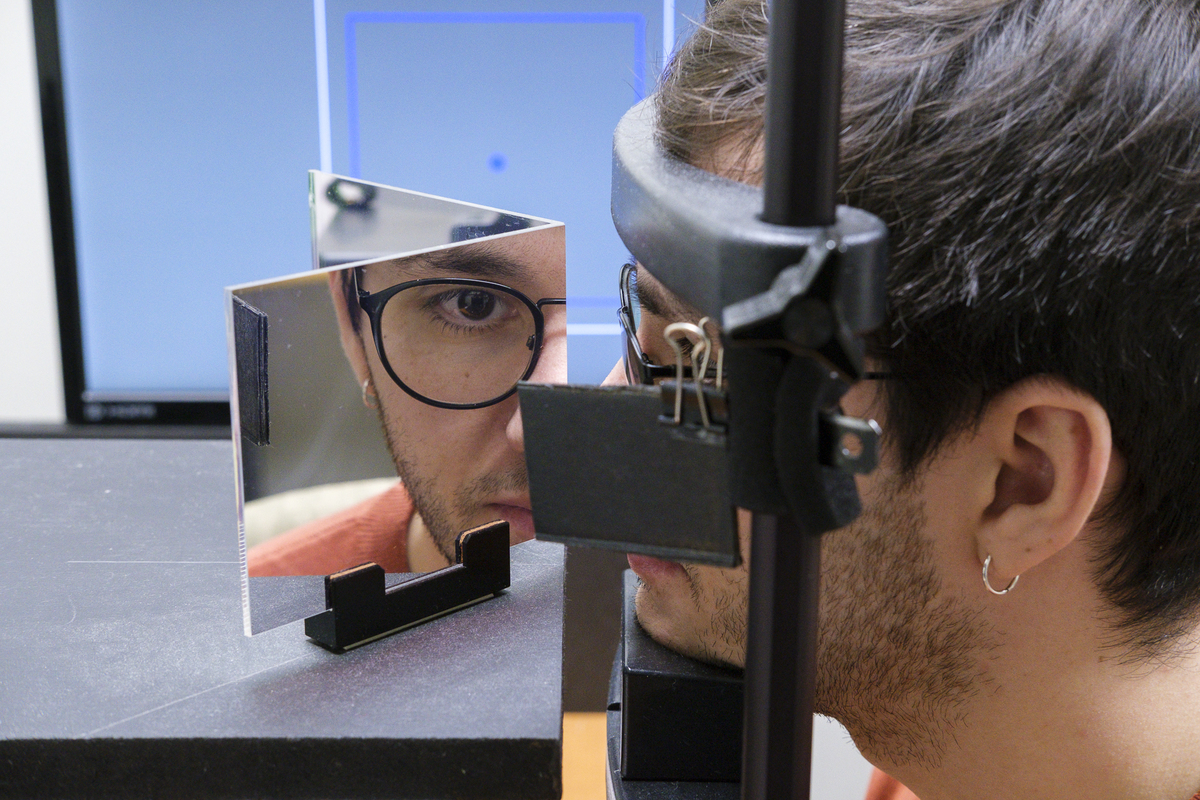
New photos from the Visual Neuroscience Lab
Dr. Brascamp's lab studies the neural process of how we see – how brains interpret light and turn it into visual perception. They use psychology and neuroscience techniques like brain imaging and eye tracking and brain stimulation.
Here you can see a participant sitting in an experiment setup that is used to show different images to the left and right eye while simultaneously measuring eye movements with a camera. They do this to create a sense of depth and it allows them to make sure that each eye receives exactly the input that they want.


Caffeine Cannot Counteract Negative Effects of Sleep Deprivation on Cognition
Researchers from MSU’s Sleep and Learning Lab, led by Dr. Kimberly Fenn, assessed how effective caffeine was in counteracting the negative effects of sleep deprivation on cognition. As it turns out, caffeine can only get you so far.

